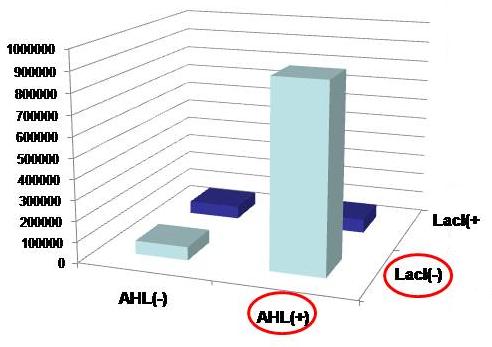Tokyo/Works
From 2007.igem.org
Abstract Concept & Model Requirements Genetic_circuit Works About_our_team
0. Hybrid promoter 1. Formulation 2. Assay1 3. Simulation 4. Assay2 5. Future works
Approach
We have alternated/combined Wet and Dry experiments to achieve our goal
0. Wet : Hybrid promoter
The newly deviced promoter sensed the TWO INPUTS, AHL & reperssor, as shown in Fig., working as an AND gate.
1.Dry : Formulation
簡単な式からわかることを導きながら、段階を経て今回必要な計算式を導出した。最終的な式では、確率微分方程式を用いている。
From simple equations, the equations necessary for our model have been deviated step by step. In the final step a stochastic differential equation is used.
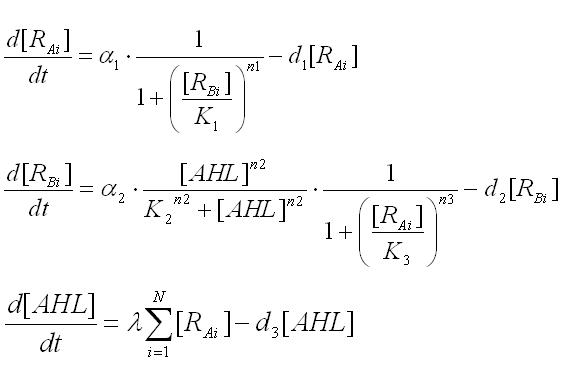
2.Wet : Assay1 using "Externally added" materials
We decided the parameter of hill coefficients by the assay of AHL & IPTG
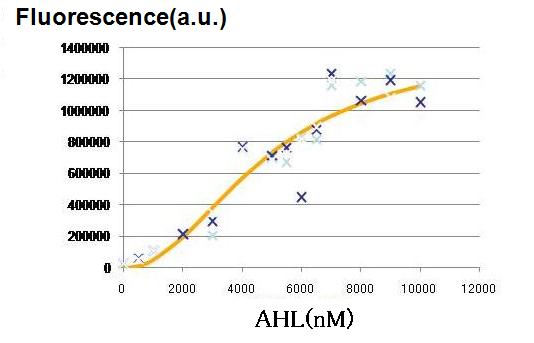
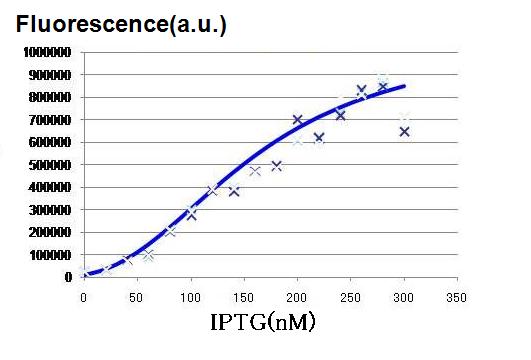
3.Dry : Simulation
Based on stochastic simulation using parameters obtained from our wet experiments, we have confirmed that the whole system becomes unstable when there are only idlers left, and then, they become either of workers and idlers. Also we have determined other parameters necessary for the desired behavior of this system.
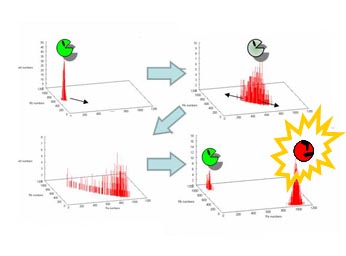
4.Wet : Assay2 using "Cell-produced" AHL
By the wet experiments using E. coli, we testified whether our current plasmids can satisfy the other required conditions (for the desired behavior of the system) estimated by the simulation.
5.Future works
Based on the results from the wet experiments in the step 4, the next dry approach - analysis and simulation - should be performed, which will in turn be testified and confirmed by wet experiments. Continueing these processes, if time permits, would further sophisticate our model.
